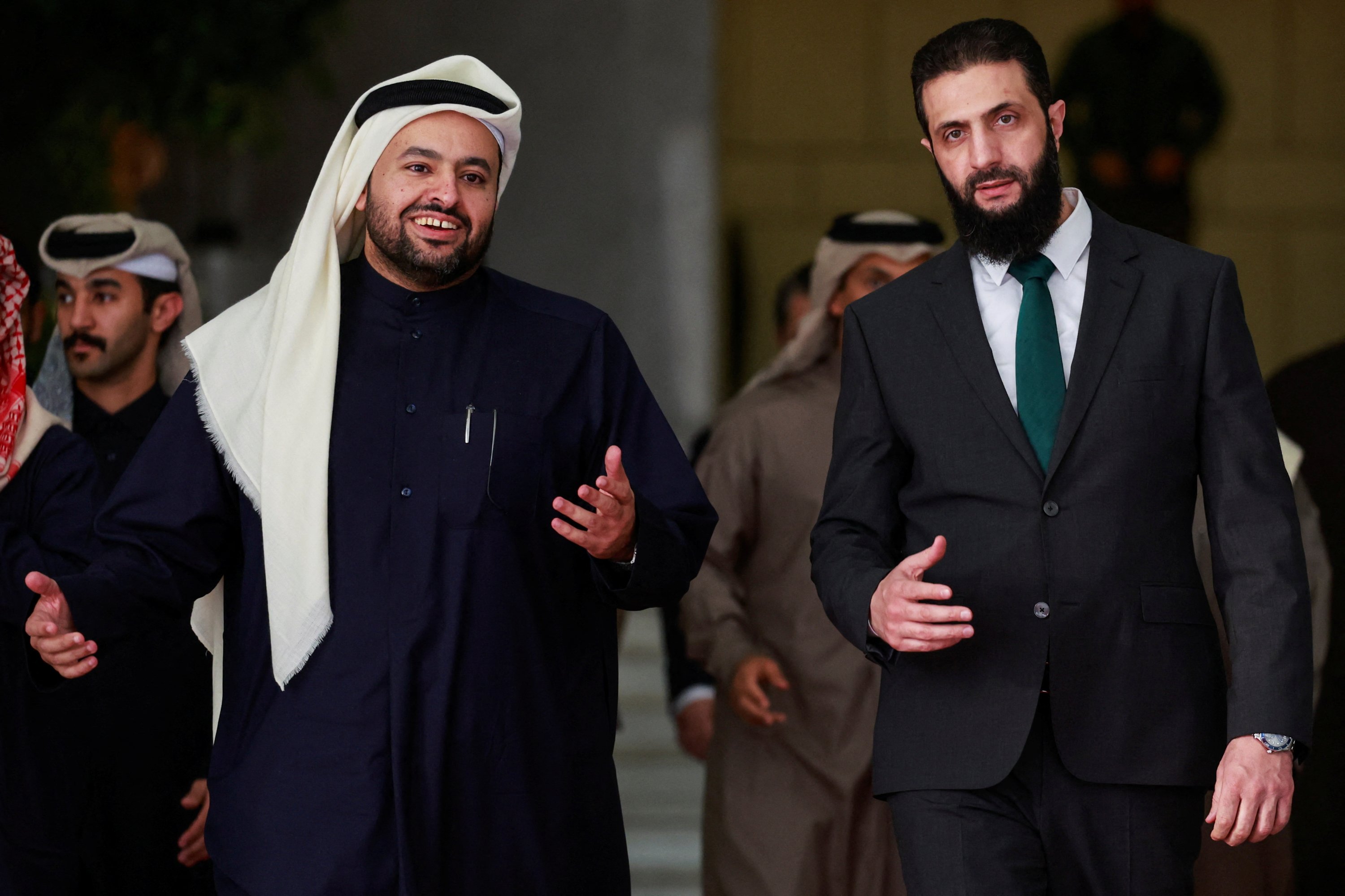© Turkuvaz Haberleşme ve Yayıncılık 2025
Qatari and Jordanian officials pledged to support Syria's new government after officials from both countries held meetings in Damascus on Monday.
Qatar is ready to invest in Syria's energy sector and ports, new Syrian leader Ahmed al-Sharaa said after meeting a senior Qatari official.
Al-Sharaa also received Jordanian Foreign Minister Ayman al-Safadi, the first Arab foreign minister to visit Damascus since the anti-regime forces ousted Bashar Assad two weeks ago. Safadi said Jordan was ready to help Syria rebuild.
The meetings further widened the diplomatic contacts of the new administration established after al-Sharaa's forces led a decisive offensive that overthrew Assad after more than 13 years of war.

The end of Assad's rule has upended the geopolitics of the Middle East, dealing a major blow to his ally Iran and paving the way for other states to build new ties to a country at the crossroads of the region.
Türkiye, which long backed the Syrian opposition, was the first state to send its foreign minister to Damascus.
Qatar's Minister of State for Foreign Affairs Mohammed Al-Khulaifi flew into Damascus on Monday aboard the first Qatar Airways flight to land there since Assad was toppled.
Al-Sharaa, speaking to reporters as he stood next to Khulaifi, said that they had discussed the challenges of the coming period, and that he had invited Qatar's Emir Sheikh Tamim bin Hamad Al-Thani to visit Syria.
"The Qatari side expressed its readiness for wide investments in Syria in many sectors, chief amongst them the energy sector in which they have great experience ... as well as the ports and airports," al-Sharaa said.
Khulaifi said Qatar, a wealthy Gulf emirate and the world's third largest exporter of liquefied natural gas (LNG), would continue to "stand alongside our brothers in Syria at this time more than any other time."
"Syria and its people need support during this crucial phase which requires the concerted efforts of everyone, especially concerning the lifting of sanctions and the upcoming developmental projects," he said.
Syria's stability is a key security concern for Jordan, a U.S.-allied Arab state which borders the country to the south.
Safadi said he agreed with al-Sharaa on cooperating to counter the smuggling of drugs and weapons from Syria to Jordan - a problem for years under Assad.
Safadi also noted that Daesh, with which al-Sharaa's group clashed earlier in the Syrian war, remained a threat.
"Our brothers in Syria also realize that this is a threat. God willing, we will all cooperate, not just Jordan and Syria, but all Arab countries and the international community, in fighting this scourge that poses a threat to everyone," he said.
"I focused on reconstruction efforts and Jordan will provide aid," Safadi said, adding that the new Syrian administration must have the opportunity to develop its plans.
There was no immediate statement from the Syrian side on the meeting.
Al-Sharaa has said his primary focus is on reconstruction and achieving economic development and that he is not interested in engaging in any new conflicts.
